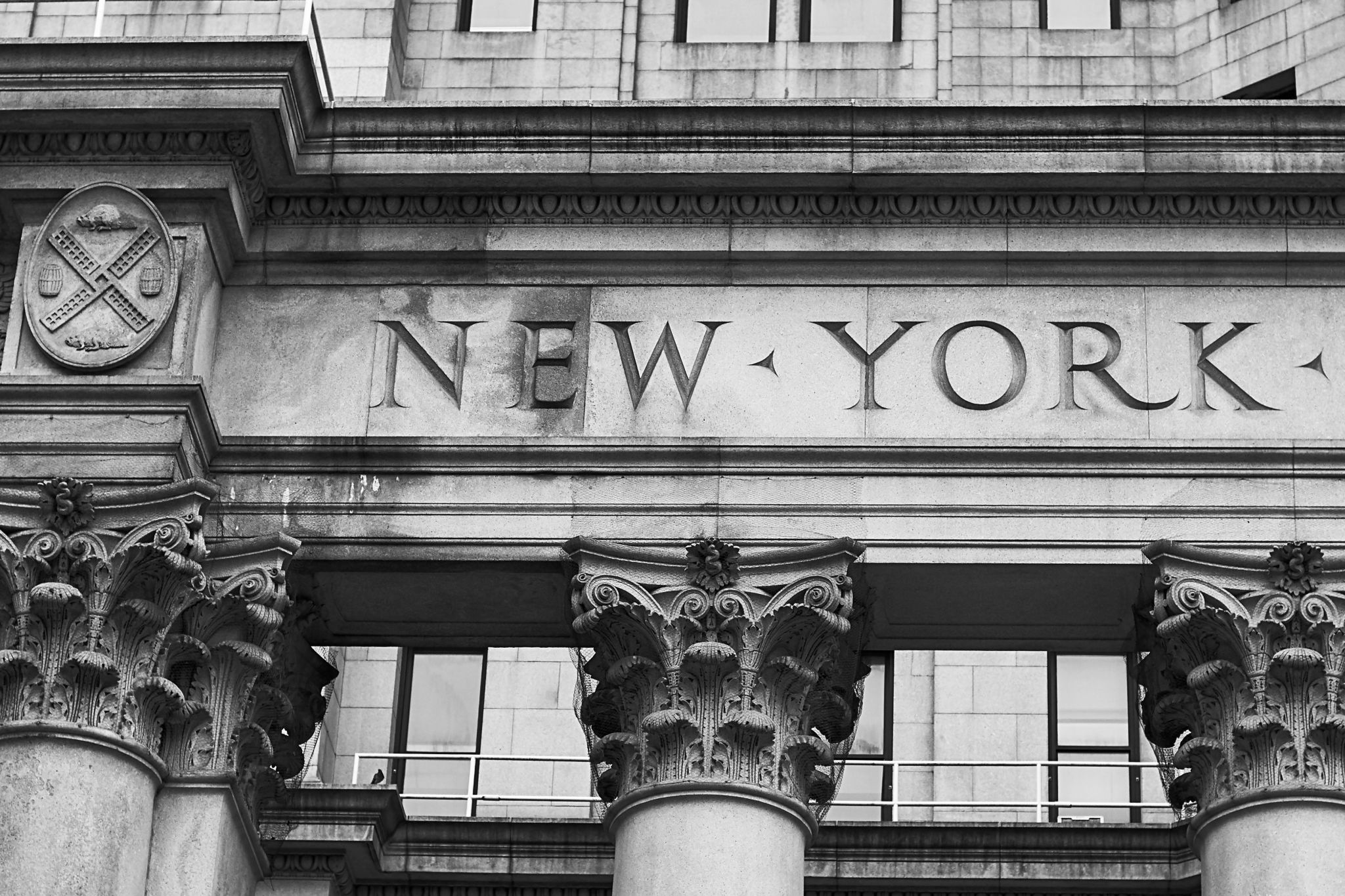New York Foreclosure Bailout Loan
How to Get a Foreclosure Bailout Loan in NY: A Business Rescue Guide
With over 200,000 business properties currently facing foreclosure across America, foreclosure bailout lenders Global Capital Funding have become a critical lifeline for many New York borrowers and investors struggling to keep their commercial properties.
Facing the threat of losing your business property can be overwhelming. However, foreclosure bailout loans offer a potential solution designed specifically to stop foreclosure proceedings and give you breathing room to resolve financial difficulties. These short-term financial products differ from traditional loans because they primarily focus on your property's value and equity rather than credit scores. Fortunately, for New York investors, several options exist, including hard money loans to stop foreclosure, which can provide fast funding when time is running out.
In this comprehensive guide, we'll walk you through everything you need to know about securing a foreclosure bailout loan in NY – from qualification requirements and application processes to alternatives if you don't qualify. Whether you're already in foreclosure or wondering how many commercial property payments you can miss before foreclosure begins, we've got you covered with practical, actionable advice.

Understanding the Stages of Foreclosure
Before diving into solutions, it's critical to know what you’re up against. The foreclosure process typically unfolds in several distinct stages, each with its own set of challenges and opportunities to recover your property.
1. Notice of Default
Everything begins when multiple payments are missed—usually three or more. At this stage, the lender issues a Notice of Default, which acts as a formal warning. Not only is this notice recorded with the county (and potentially the state court in judicial states), but it’s also reported to credit bureaus. That means your credit score takes a hit, and qualifying for future loans becomes more difficult.
From here, you still have lifelines:
- Forbearance: Pause payments temporarily to regroup and stabilize your finances. (Spoiler alert: The missed payments still have to be made up.)
- Loan Modification: Renegotiate your mortgage terms—like lower monthly payments or an extended repayment period—to get things back on track.
- Reinstatement: If you can pay the overdue amount in a lump sum, you might be able to bring the loan current and halt foreclosure proceedings entirely.
2. Pre-Foreclosure
If negotiations, reinstatement, or forbearance don’t pan out, you enter pre-foreclosure. For properties in judicial foreclosure states (like New York), the lender files a lawsuit to seek approval for a foreclosure sale. In non-judicial states, the lender notifies the county of their intent to proceed.
Borrowers still have options—another shot at convincing the lender to modify the loan or, as some choose, hiring an attorney to battle the foreclosure in court (often at significant cost and with no guarantee of success). At this vulnerable point, many owners turn to foreclosure bailout loans to cover the arrears, stop the legal process, and keep the property, as seen in cases from Florida where both homeowners and investors saved their assets at the eleventh hour.
3. Foreclosure Auction
If all else fails, the property advances to a public auction. In judicial cases, a judge confirms the sale date; in non-judicial states, the lender controls when the auction happens after the waiting period passes.
Once your property is scheduled for auction, options narrow considerably. However, some resourceful lenders can still provide foreclosure bailout loans even days before the auction to reclaim or rescue property—sometimes even helping owners buy back the property after the auction, provided local laws allow for a redemption period.
Understanding these foreclosure stages arms you with the knowledge to act quickly, weigh your options, and—if necessary—leverage a foreclosure bailout loan to regain your footing.
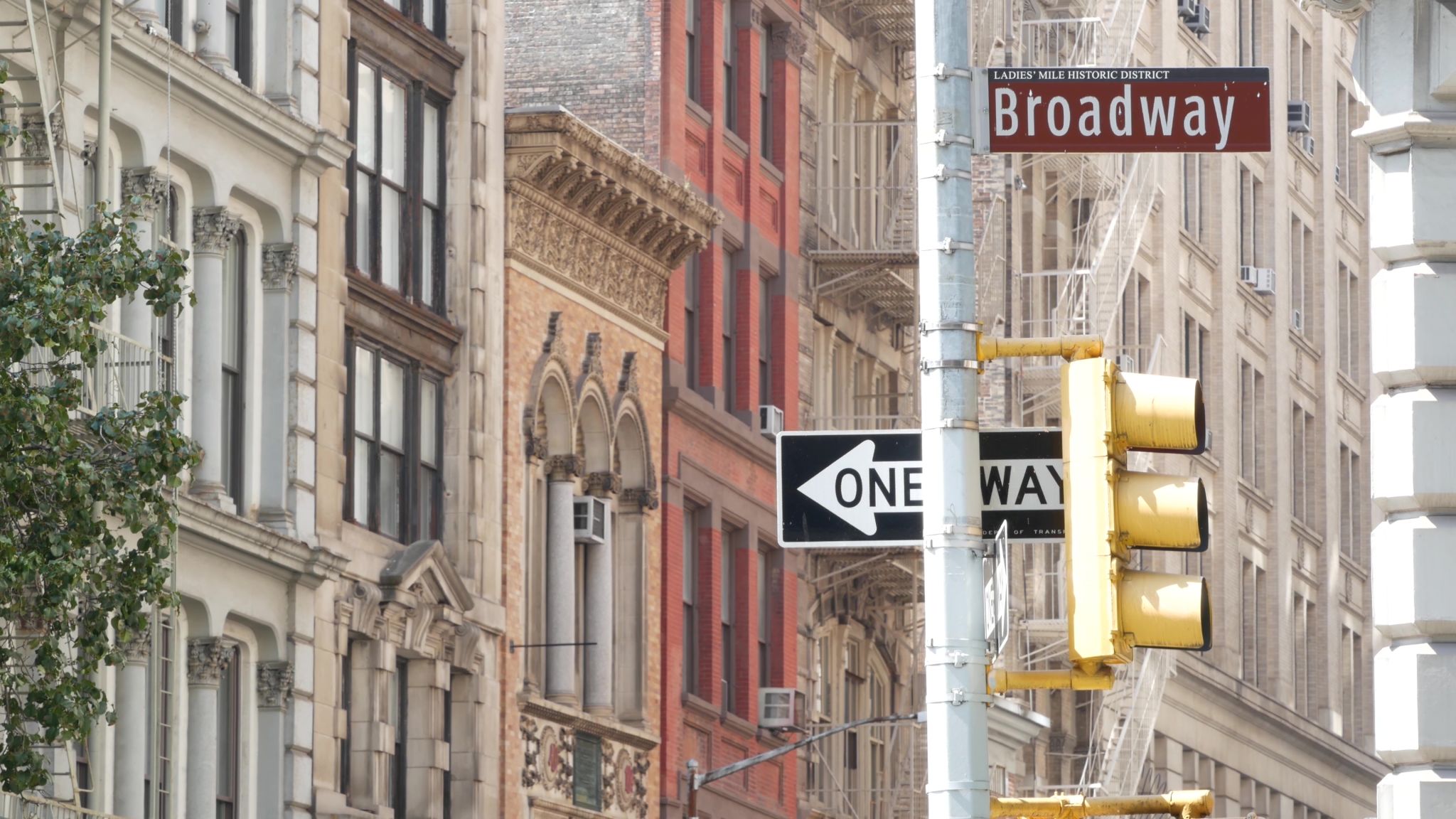
What Is a Foreclosure Bailout Loan?
A foreclosure bailout loan is a specialized mortgage product designed to rescue business owners from losing their property to foreclosure. Unlike standard mortgage refinancing, these loans specifically target properties in or approaching foreclosure and can either refinance the entire outstanding balance or provide just enough funds to bring a defaulted loan current.
Can a Foreclosure Bailout Loan Improve Monthly Payments or Loan Terms?
One of the standout advantages of a foreclosure bailout loan is the potential to secure a more manageable monthly payment compared to your existing mortgage. Many borrowers find relief through new loan terms that may feature:
- Lower monthly payments: Bailout lenders often offer extended loan terms or different amortization schedules, which can significantly ease the monthly burden.
- Reduced interest rates: Depending on your equity and overall risk profile, you might qualify for a lower interest rate than your old mortgage, trimming both immediate and long-term costs.
- Flexible structures: Some programs are designed to fit unique business cash flows, allowing for interest-only periods or graduated payment plans during recovery.
It’s important to note, though, that approval and terms will depend on your property’s equity, your credit situation, and lender policies. Still, for many commercial property owners, a bailout loan can turn overwhelming payments into a realistic and sustainable path forward.
Can You Get Cash Out from a Foreclosure Bailout Loan?
Absolutely—if your property has sufficient equity, a foreclosure bailout loan can do more than just cover what you owe. In some cases, you might walk away from closing with extra funds in your pocket.
Here's how it typically breaks down:
- Loan-to-Value (LTV) Ratio: Most foreclosure bailout lenders are willing to lend up to a certain percentage of your property's appraised value, often in the range of 60%–70%.
- Equity Position: If your outstanding balance is well below that percentage, the difference (after closing costs) may be released to you as cash at closing.
For example, suppose your property is appraised at $1,000,000, and a lender offers a maximum LTV of 65%. That means you could qualify for a $650,000 loan. If you only owe $600,000 to your previous lender, you could potentially receive the $50,000 difference (minus costs and fees) as cash out—giving you some much-needed breathing room for debt payments, repairs, or working capital.
It's not guaranteed—cash-out options depend entirely on both your property's value and your accrued equity. But for many owners in distress, this added flexibility can make a real difference during tough times.
Judicial vs. Non-Judicial Foreclosure: Pros and Cons for Borrowers
When it comes to foreclosure, borrowers generally encounter two distinct processes: judicial and non-judicial foreclosure. Each comes with its own upsides and pitfalls, and it’s critical to understand how these differences might impact your timeline, options, and stress levels.
Judicial Foreclosure: More Protection, More Time
In states like New York, judicial foreclosure is the norm. That means your lender can't simply swoop in and reclaim your property if you default—first, they have to take you to court. For borrowers, this legal gauntlet has clear advantages:
Built-in Safeguards: Being part of a formal court process ensures you have the chance to respond, present defenses, or negotiate with your lender. This can open the door to settlements or loan modifications that might not be available otherwise.
Longer Timeline: The process is thorough (sometimes excruciatingly so). It can take months or even years before a final judgment is reached, giving you more time to explore alternatives like a foreclosure bailout loan or even sell the property on your terms.
Formal Oversight: Because a judge oversees the proceedings, you’re less likely to encounter unexpected moves from the lender. Every step is documented, which can help prevent errors or miscommunications.
But, these protections come at a price:
Drawn-Out Stress: The lengthy process can mean months (or years!) of limbo. For business owners trying to plan ahead, or resolve their financial situation quickly, this waiting game can feel agonizing.
Legal Costs: Court proceedings may mean you’ll want legal representation, adding another layer of expense.
Non-Judicial Foreclosure: Faster, But Less Forgiving
Non-judicial foreclosures, more common in states like California or Texas, work differently. If your mortgage or deed of trust includes a power of sale clause, your lender can skip the courthouse altogether and proceed directly to selling the property.
Here's what borrowers need to consider:
Speed: The process can move quickly—sometimes within a matter of weeks after you miss payments and receive notice. This rapid timeline can leave little room to negotiate, refinance, or mount a legal defense.
Limited Oversight: Without a judge, it’s up to you to watch for mistakes or challenge improper procedures. Lenders have more discretion, and you may have fewer opportunities for appeal if things go sideways.
Lower Legal Barriers: There’s less paperwork, and the process is more predictable from the lender’s perspective—but that efficiency isn’t always a positive for borrowers.
On the upside:
Quicker Resolution: If you’re hoping to settle affairs promptly—maybe by paying off arrears or leveraging a foreclosure bailout loan—this process can cut through red tape. For some, the ability to resolve everything swiftly (one way or another) is preferable to a drawn-out legal ordeal.
How to Stay Ahead in a Fast-Moving Non-Judicial Foreclosure
So what do you do if you’re staring down a non-judicial foreclosure and the clock is ticking? The speed of this process means borrowers can't afford to wait—and a proactive approach is essential to protecting your property.
Act Fast When Notified
The moment you receive a notice of default or intent to foreclose, review it carefully. Mark deadlines on your calendar. In non-judicial states, the timelines are tight (sometimes weeks, not months), so don’t assume you’ll have plenty of time to get your ducks in a row.
Contact Your Lender Immediately
Don’t ignore calls or letters! Reach out to your lender as soon as possible to discuss your situation. Many lenders are open to temporary solutions, including forbearance agreements, repayment plans, or loan modifications—especially if you can demonstrate a genuine ability to resolve the arrears.
Gather Financial Documentation
Being organized will make any conversation with your lender or other entities more productive. Pull together recent pay stubs, bank statements, and tax returns. The more quickly you can provide evidence of your financial status, the more options you’ll have on the table.
Explore Quick-Action Solutions
If you can’t bring the loan current or strike a deal with your lender, consider options that can be executed swiftly:
Sell the Property: List it with a trusted real estate agent or sell to a home-buying company. In some hot markets, you may be able to close before the auction happens.
Refinance or Secure a Bailout Loan: Some traditional banks, credit unions, and private lenders (look to SoFi, LendingTree, or regional credit unions) offer loan products for distressed homeowners, though rates and eligibility can vary.
Short Sale: If you owe more than the home is worth, see if your lender will entertain a short sale—selling for less than the loan balance—with formal approval.
Seek Professional Help
Consult with a HUD-approved housing counselor or a local real estate attorney experienced with non-judicial foreclosures. They can explain state-specific timelines (California, Texas, and Massachusetts all move quickly!) and help you avoid common missteps.
Request Information and Watch for Errors
Lenders and trustees must still follow the letter of the law. Check that you’ve received all legally required notices. If paperwork is missing or contains mistakes, you may be able to buy valuable time by raising the issue right away.
In short: when the non-judicial process kicks off, every day counts. The sooner you act—whether by negotiating, selling, refinancing, or seeking expert guidance—the better your odds of preventing a forced sale and keeping your financial plans on track.
The Bottom Line
For borrowers, judicial foreclosures offer more time and protection, at the cost of an extended process and possible legal fees. Non-judicial foreclosures, meanwhile, favor speed—which might work for you if you have a plan, but can also limit your ability to fight or fix the situation. Knowing your state’s process—and your own financial options—can help you navigate whichever road you find yourself on.
Understanding the Power of Sale Clause in Foreclosure
If you’re navigating the treacherous waters of foreclosure, you’ll likely come across the term “power of sale clause.” So, what does this actually mean for New York business owners?
The power of sale clause is a provision tucked inside many mortgage agreements, especially on commercial properties. When present, it gives the lender the legal authority to bypass the court system and directly sell your property if you default on your loan. This significantly streamlines the foreclosure process, often making it much faster and more efficient compared to traditional (judicial) foreclosure that requires lengthy legal proceedings.
In states like New York, the distinction comes down to whether your loan documents include this clause:
With a power of sale clause: Your lender can initiate a non-judicial foreclosure, selling your property at auction without dragging the matter before a judge.
Without it: The lender must file a lawsuit and go through the full judicial foreclosure process, which is typically slower and may offer property owners a bit more time to resolve their defaults.
Ultimately, having a power of sale clause in your mortgage documents means the foreclosure process can move quickly, so timing is critical when exploring bailout options. If you suspect this applies to your property, it’s essential to act fast—time and equity are your biggest assets in these situations.
How Does the Non-Judicial Foreclosure Process Work?
Non-judicial foreclosure is the expedited route lenders can take when borrowers fall behind on their mortgage—instead of involving courts, everything moves through contractual procedures spelled out in the loan documents. Most commonly found in states like California, Massachusetts, and Texas, this process is allowed when mortgages include a "power of sale" clause or are structured as deeds of trust.
Here’s how it typically unfolds:
Missed Payments Trigger Action: Once a borrower misses several monthly payments, the lender sends a formal notice—think of this as your final warning, not a mere nudge.
Notice and Waiting Period: Unlike judicial foreclosure, there's no lawsuit filed at this stage. Instead, the lender issues a notice of default and gives the borrower a window (often 30 days or more, depending on state law) to bring payments current.
If Default Continues: Should the borrower still be unable to pay, the lender—often through a third-party trustee, like a title company—moves forward with a notice of sale. This spells out when and where the property will be auctioned off. No courtroom, no judge—just straight to the point.
Auction and Repossession: After the required notices and waiting periods, the property heads to public auction. If it sells, the new owner takes over. If not, the lender often repossesses it.
This entire process can sometimes happen in a matter of months—much faster than the judicial route, which can drag out for a year or more. The speed is both a blessing and a curse: while it’s more efficient for lenders, borrowers facing non-judicial foreclosure have far less time to resolve their situation.
During these high-pressure circumstances, options like foreclosure bailout loans can provide much-needed relief, serving as a financial lifeline to help borrowers keep their properties and regain their footing.
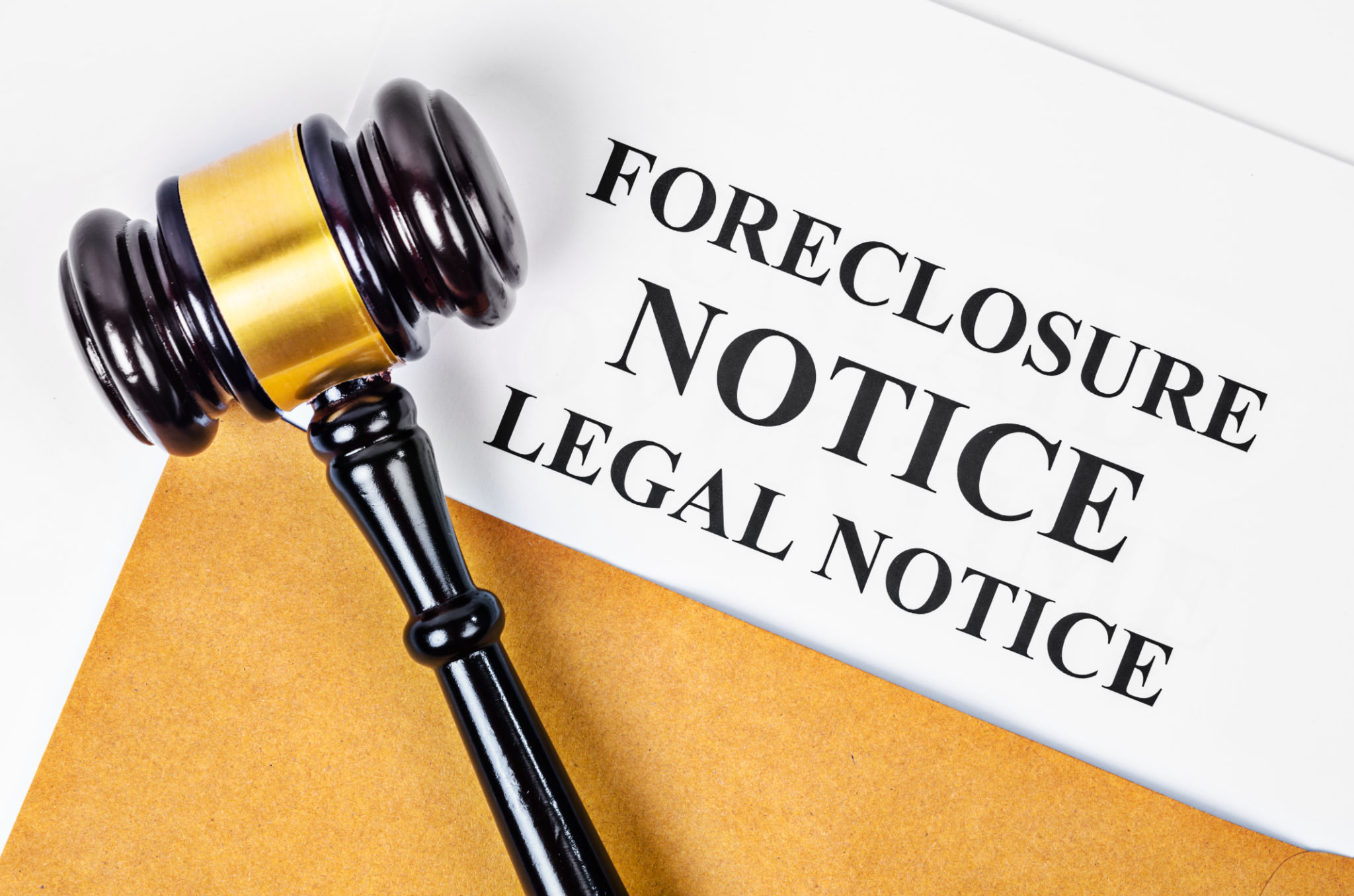
How the Judicial Foreclosure Process Works
If your mortgage doesn't include a power of sale clause—or if you're in one of the many states where judicial foreclosure is required—the foreclosure process must go through the courts. Here’s what you can expect:
Court Filing: The lender begins by filing a lawsuit in the county court, claiming that you’ve defaulted on your mortgage. This officially starts the judicial foreclosure process.
Borrower Response: As the property owner, you have the right to respond to the lawsuit and present any defenses. You can do this with or without a lawyer, depending on your preference and the complexity of your case.
Negotiation and Settlement: At any point before the court makes a final decision, it’s possible for you and the lender to negotiate a settlement. This might mean agreeing to a short payoff, modifying the loan, or working out another resolution that stops the foreclosure in its tracks.
Court Decision: If there’s no settlement, the case moves forward to a trial. If the court rules in favor of the lender, a judgment is entered, and your property will be scheduled for auction. On the other hand, if you win your case, you retain ownership of your property and the foreclosure action ends.
Judicial foreclosure is the default approach in states like New York, Florida, Illinois, and Connecticut. While this process is often slower and more drawn out than non-judicial foreclosure, it does offer owners more opportunities to contest the foreclosure and protect their property rights.
Judicial vs. Non-Judicial Foreclosures: What’s the Difference?
Understanding the distinction between judicial and non-judicial foreclosures is crucial when navigating a potential property loss, especially in a market like New York.
In a judicial foreclosure, the process goes through the court system. If your mortgage doesn’t contain a “power of sale” clause, your lender must file a lawsuit to foreclose. This gives you, as the borrower, the chance to defend yourself in court, propose settlements, and potentially delay proceedings. States like New York, Connecticut, and Florida require judicial foreclosures by law. The process can stretch from several months to even years, offering time—but also extending uncertainty and legal expenses. On the upside, there’s greater legal protection, and more opportunities to negotiate, pay arrears, or seek alternatives like loan modifications.
By contrast, non-judicial foreclosures are typically much faster and less formal. These occur when a mortgage or deed of trust includes the power of sale clause, allowing the lender or a trustee (often a title company) to move directly to sell the property—often after a series of notices and waiting periods, but without ever setting foot in a courtroom. This streamlined approach is more common in states like California, Texas, and Massachusetts. The main downside? Borrowers have far less time to respond before their property is auctioned off.
Here’s a quick comparison:
- Judicial Foreclosure: Requires court involvement
- Longer timeline (months to years)
- Borrower has more legal protection and options
- Used in New York and similar states
- Non-Judicial Foreclosure: No court proceedings required
- Quicker process (often just weeks)
- Less opportunity to contest or delay
- More common in Western and Southern states
For business owners and investors in New York, the judicial process means you’ll have more time to seek out solutions—like foreclosure bailout loans—while the clock ticks on a pending foreclosure notice. But regardless of which process applies, acting early is vital to maximize your options and preserve your property.
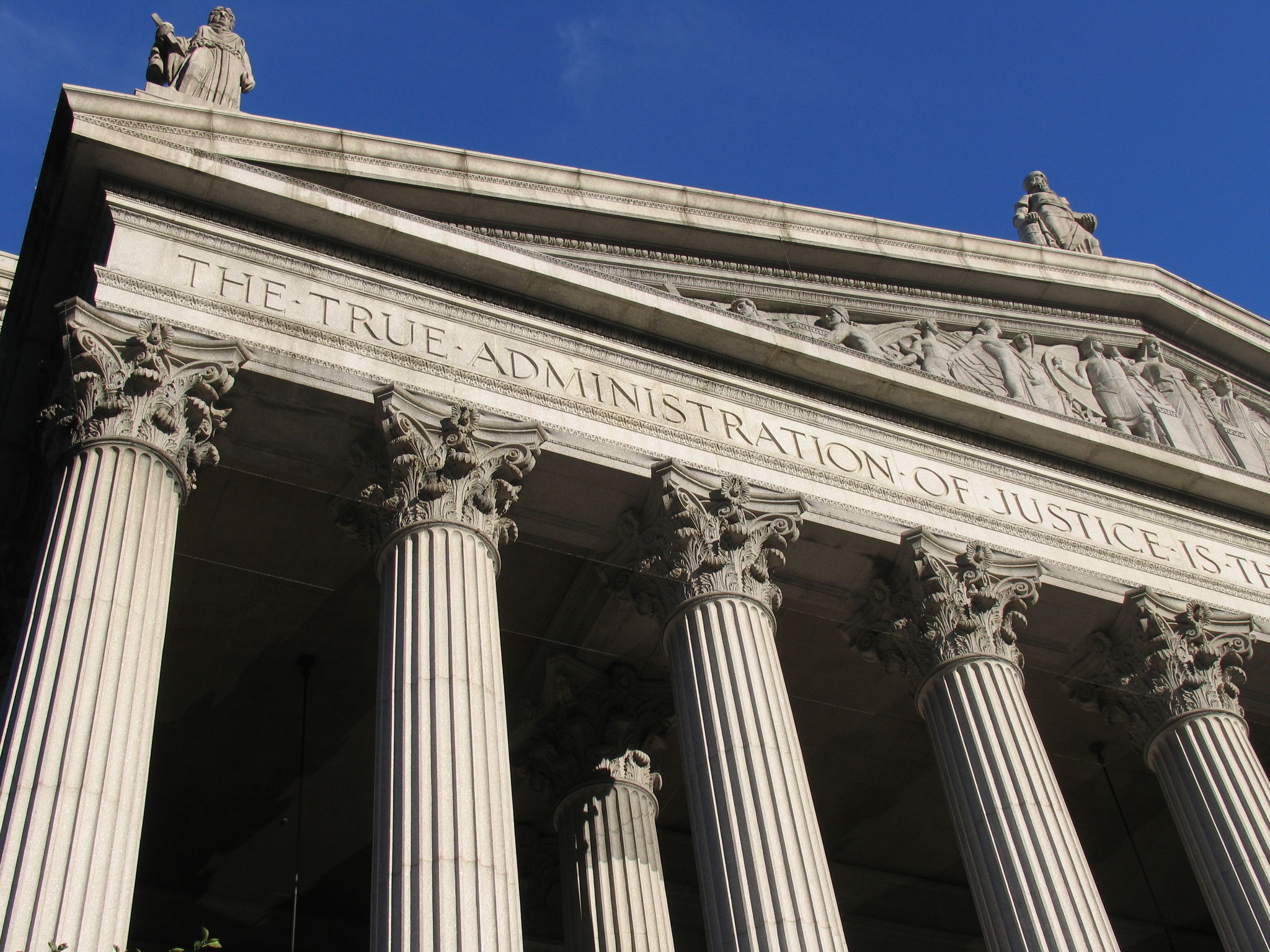
Why Do Borrowers Default on Mortgages?
While missing payments is the obvious reason for entering foreclosure, the causes often run deeper than simply falling behind. Many borrowers struggle with factors beyond their control, and it’s not always about personal mismanagement.
Some of the most frequent triggers for mortgage default include:
Sudden job loss or unemployment
When income unexpectedly drops, borrowers may find themselves unable to keep up with monthly payments.
Rising payments due to adjustable-rate mortgages (ARMs)
An increase in interest rates can make formerly affordable mortgages unmanageable.
A looming balloon payment
Some loans require one large payment at maturity, which can catch borrowers off-guard if they're unable to refinance.
Health emergencies
Serious illness or injury can quickly drain savings and disrupt the ability to pay the mortgage.
Overwhelming debt burdens
Mounting credit card balances or IRS tax liens often pile up, leaving little left for mortgage obligations.
Large, unexpected expenses
From hefty tax bills to major home repairs, surprise costs can derail even the most careful budgets.
Life events
Death, divorce, or disputes within a business partnership frequently force difficult financial decisions.
Notably, even well-intentioned property improvements—such as significant renovations without lender approval—can inadvertently violate loan terms and trigger a technical default. It’s a reminder that maintaining communication with your lender is just as crucial as making payments.
How it differs from traditional refinancing
Foreclosure bailout loans operate fundamentally differently from conventional refinancing:
- Approval Criteria - Traditional lenders scrutinize credit scores and income documentation, whereas foreclosure bailout lenders focus primarily on your property's value and equity position. Many don't require minimum credit scores, making them accessible to borrowers with damaged credit.
- Speed of Funding - Conventional refinancing typically takes months, which is too slow for foreclosure situations. Foreclosure bailout lenders, on the contrary, generally approve and fund loans within 5-15 days, with Global Capital Funding offering pre-approvals in just 24-48 hours.
- Terms and Structure - These loans feature:
- Higher interest rates (typically 8-15%)
- Shorter terms (usually 12 months to 3 years)
- Often interest-only payments during the loan term
- Potentially significant origination fees
- When it makes sense to consider one
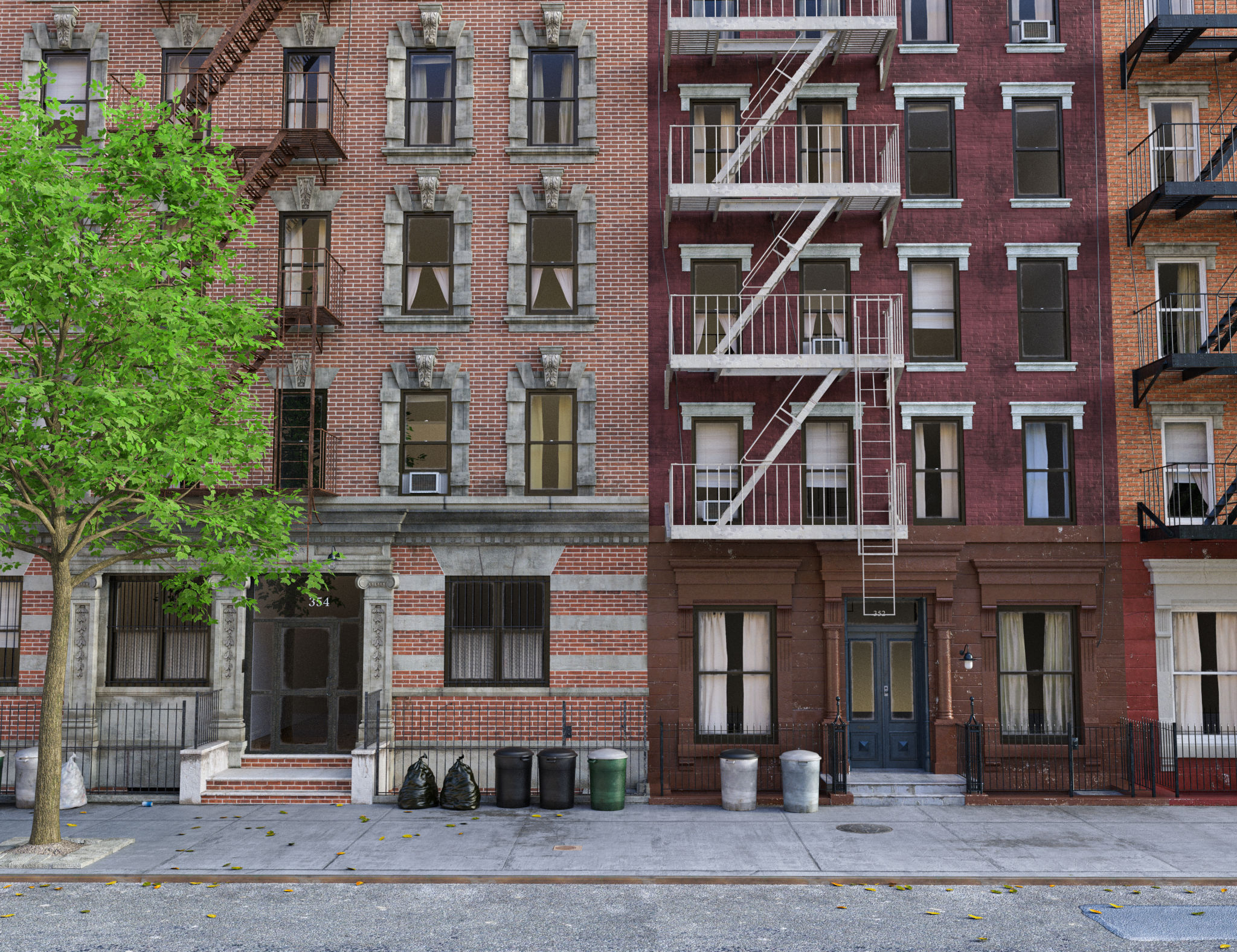
Do Foreclosure Bailout Loans Come With Prepayment Penalties?
The presence of prepayment penalties on foreclosure bailout loans depends heavily on the lender and the specific deal. Some lenders do attach prepayment penalties, meaning you could face a fee if you pay off the loan early. However, many alternative and hard money lenders—including some active in New York—offer programs without these penalties, allowing borrowers to repay as soon as their finances allow without extra cost.
Why does this matter? Since foreclosure bailout loans often carry higher interest rates, having the freedom to pay off the loan early can save you a significant amount in interest. It’s always wise to ask upfront about prepayment terms and compare lenders—sometimes a slightly higher upfront fee is worth the flexibility of no penalty if you anticipate selling the property or refinancing quickly.
Foreclosure bailout loans make sense in several scenarios:
First, if you've fallen behind on mortgage payments but have substantial equity in your business property (typically at least 25%), these loans can provide immediate relief while you stabilize your finances.
Additionally, foreclosure bailout financing offers a practical solution when you need time to either reorganize your finances or sell the property on your own terms. This prevents losing your commercial property at a foreclosure auction, where properties often sell below market value.
Moreover, these loans offer an opportunity to rebuild credit. The new lender provides a clean slate to establish on-time payment history, ultimately boosting your credit rating. Maintain Your Credit Score—Keep your credit record from being permanently damaged by a foreclosure. By avoiding foreclosure through this type of emergency financing, you not only prevent a major negative mark on your credit report but also position yourself for a stronger financial future once you transition to a more conventional loan.
Tailored Solutions for Unique Situations
Every commercial property and business faces different challenges during foreclosure. That’s why foreclosure bailout lenders frequently take a flexible, case-by-case approach—structuring financing terms around your unique needs, property type, and business goals. Whether you’re looking to retain ownership, buy time to secure a better long-term loan, or simply need a short-term bridge, these loans are designed to fit a variety of circumstances. Competitive interest rates and customized repayment schedules are commonplace, ensuring you have the breathing room necessary to recover or transition smoothly.
Nevertheless, it's important to recognize that foreclosure bailout loans are temporary solutions. Many borrowers use them as emergency bridge financing until they can qualify for more conventional, lower-interest mortgages.
Who Qualifies for a Foreclosure Bailout Loan in NY
Qualifying for a foreclosure bailout loan in New York depends on several key factors that vary significantly among lenders. Understanding these requirements can help determine if this option is viable for your specific situation.
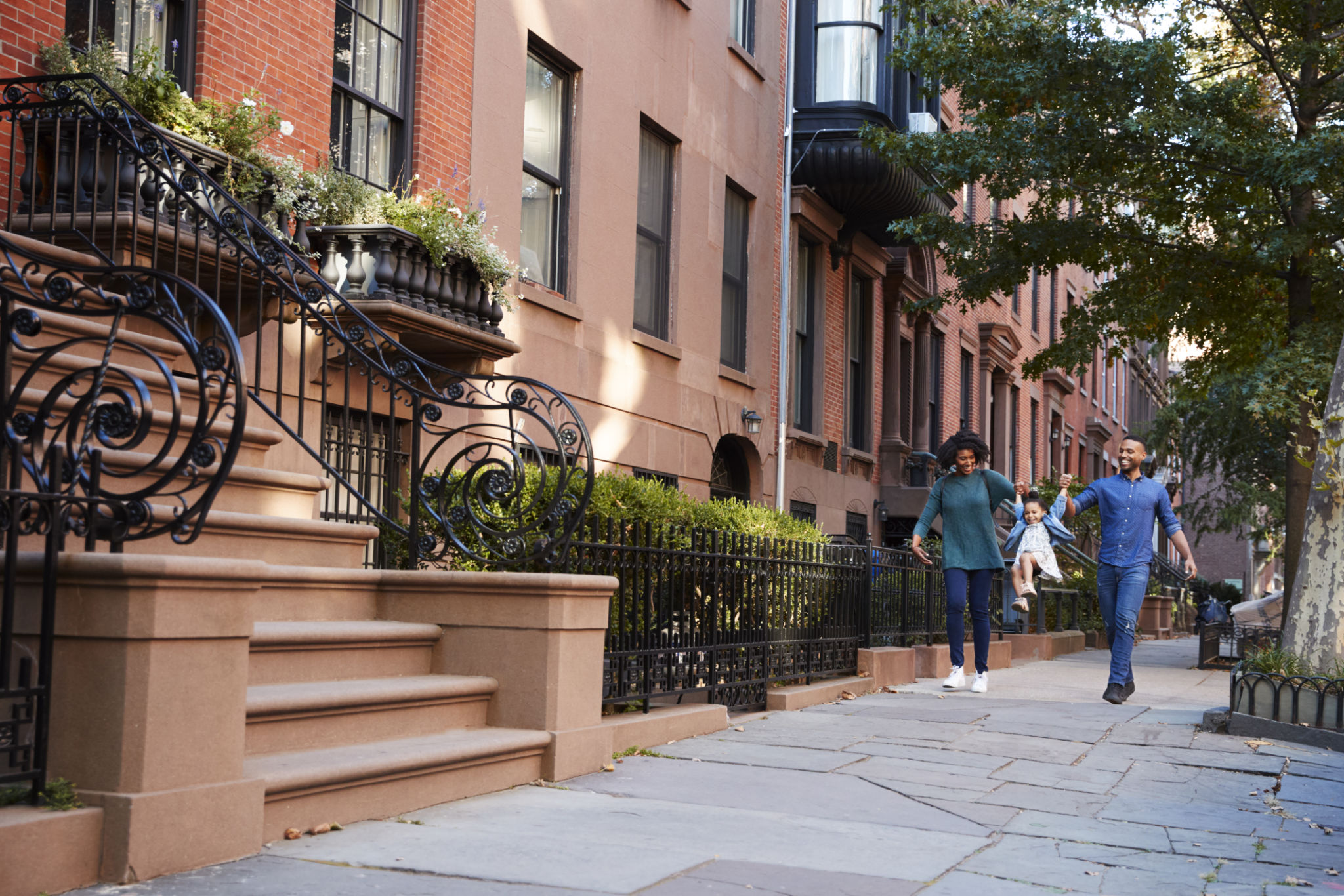
Owner-occupied vs. investment property rules
The distinction between owner-occupied homes and investment properties is crucial when seeking foreclosure bailout financing. Notably, many hard money lenders in New York restrict their foreclosure bailout programs to investment properties only. Indeed, some lenders explicitly state they cannot provide financing to homeowners in foreclosure on their primary residence.
For primary residences facing foreclosure, you might instead need to pursue loan modifications or forbearance with your existing lender. Conversely, if you own an investment property in foreclosure, you'll find more options available through foreclosure bailout lenders in NY, especially those specializing in commercial real estate.
Credit score and income considerations
Although traditional mortgage lenders typically require strong credit profiles, foreclosure bailout loans often operate under different parameters:
- Some alternative lenders may accommodate borrowers with minimum credit scores around 620
- Certain foreclosure bailout programs don't require minimum FICO scores at all, recognizing the damage foreclosure processes cause to credit ratings
- Many lenders base approval primarily on the property's value rather than the borrower's creditworthiness
This asset-based approach means that even with damaged credit, securing a foreclosure bailout loan remains possible, particularly for commercial properties in New York.
Loan-to-value and property type eligibility
The amount you can borrow through a foreclosure bailout loan directly relates to your property's value:
Most lenders require substantial equity, typically at least 25% of the property's value. Loan-to-value (LTV) ratios generally range from 50-65%, depending on property location and risk factors. This means if your current loan balance is very close to the property's value, refinancing options may be limited.
Regarding property types, foreclosure bailout loans in New York are available for:
- Buisness owners and investment properties
- Multifamily buildings (2-4 units)
- Commercial real estate including office buildings, retail spaces, and industrial warehouses
For commercial properties specifically, personalized asset-based solutions exist regardless of credit status.

Minimum Loan Amount for Foreclosure Bailout Loans
When considering a foreclosure bailout loan, most New York lenders require a minimum loan amount—often starting at $500,000. While there are exceptions where some lenders may offer lower amounts on a case-by-case basis, loans below this threshold are generally less common. Ultimately, loan amounts are determined by both your available equity and the specific risk profile of your property. This minimum ensures that the loan size justifies the underwriting and funding process, particularly for commercial or investment properties.
How to Apply for a Foreclosure Bailout Loan
Securing a foreclosure bailout loan involves a streamlined process focused on speed and efficiency, since time is typically a critical factor for homeowners facing auction dates.
Step 1: Submit a basic application
The journey toward rescuing your property begins with a simple application. Most foreclosure bailout lenders Global Capital Funding in NY have designed their initial application process to be straightforward:
- Complete an online form with basic property details and foreclosure status
- Provide essential contact information
- Submit minimal documentation compared to traditional mortgage applications
This initial step requires just enough information for the lender to make a preliminary assessment, without the extensive paperwork typical of conventional loans. For investment properties specifically, working with local New York-based lenders often yields better results.

Step 2: Property valuation and underwriting
After submitting your application, the lender conducts a thorough evaluation of your property:
First, they order a professional appraisal to determine your property's current market value. This valuation becomes the foundation for your loan terms, as foreclosure bailout lenders focus primarily on the property's worth rather than your credit history.
Once the appraisal is complete, underwriters move on to calculate your loan-to-value (LTV) ratio. Your LTV reflects how much risk the lender is willing to accept in exchange for your loan. It is calculated by dividing the loan amount by the property’s appraised value.
For foreclosure bailout loans, lenders typically offer between 50-65% of the property's appraised value, though this percentage may vary depending on the location, property type, and other criteria. In some cases, higher LTVs are possible on a case-by-case basis, particularly for properties with stronger market appeal or unique circumstances.
Throughout this process, foreclosure bailout lenders evaluate the property as collateral, not your personal financial history. This asset-based approach means the focus remains squarely on your property's current value and potential, enabling faster decisions and often more flexible terms than conventional financing.
Step 3: Approval and fast funding
Once your property passes valuation, things move quickly:
Many lenders provide pre-approvals within 24-48 hours after application submission. Following approval, closing typically occurs within 5-15 days – much faster than conventional financing. At closing, the new loan pays off your existing mortgage entirely, halting any foreclosure proceedings immediately.
Tips for working with foreclosure bailout lenders in NY
To maximize your chances of approval:
Focus on highlighting your property's value and your equity position rather than explaining credit issues. Prepare a clear exit strategy – lenders want to know how you'll eventually repay or refinance this short-term loan. Understand that one-time default situations are viewed more favorably than chronic payment problems. Finally, be ready for higher interest rates (typically 8-15%) as a trade-off for quick approval.
Improving Your Eligibility for a Future Traditional Mortgage
A foreclosure bailout loan isn't just a lifeline—it's also a limited window to regroup and rebuild your financial standing so you can qualify for a mainstream mortgage down the line. Here’s how to make the most of that opportunity:
Address the root cause: If job loss or inconsistent income led to missed payments, focus on securing stable employment or boosting your income through side work or freelance opportunities.
Rebuild your credit: Make on-time payments on your new loan and keep other debts in check. Consider tools like Experian Boost or secured credit cards to accelerate credit repair.
Save for reserves: Even small, regular contributions to a savings account will help demonstrate to future lenders that you have a financial cushion—a common requirement for traditional loans.
Reduce your overall debt: Pay down credit card balances and avoid taking on any new, unnecessary debt. Lenders pay close attention to your debt-to-income ratio.
Maintain thorough documentation: Keep records of all payments, employment changes, and correspondence with your lender. This paper trail will make it easier to explain your financial turnaround when it's time to apply for a new mortgage.
By actively taking these steps during the term of your foreclosure bailout loan, you’ll be in a much stronger position the next time you approach a bank or credit union for a conventional mortgage.
Alternatives If You Don’t Qualify
Not everyone can secure a foreclosure bailout loan, but several alternatives exist that might still save your home or minimize financial damage.
Loan modification and forbearance
Loan modifications offer a permanent restructuring of your mortgage terms. When successful, your lender may:
- Lower your interest rate
- Extend your loan term
- Add missed payments to the loan balance
- Possibly reduce principal in rare cases
First, contact your current lender and request their loss mitigation application. The review process typically takes 30-90 days, during which foreclosure proceedings might be temporarily suspended.
Forbearance, alternatively, provides temporary relief by pausing or reducing your mortgage payments for a specific period. This option works best for short-term financial hardships, such as medical emergencies or temporary job loss. After forbearance ends, you'll need a plan to address the missed payments, usually through a repayment plan or loan modification.
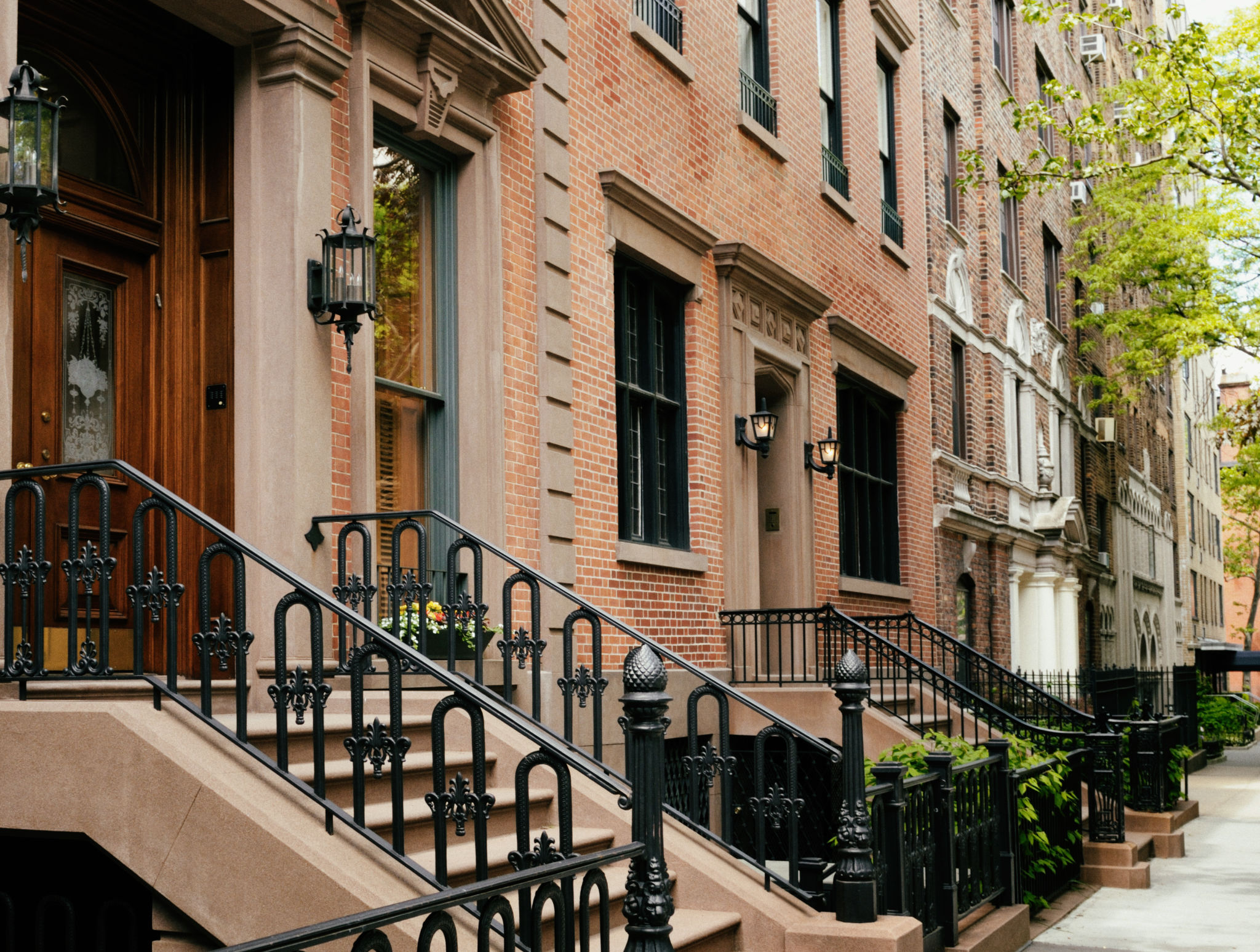
Short sale or deed-in-lieu of foreclosure
A short sale allows you to sell your investment property for less than you owe, with the lender accepting the proceeds as full or partial satisfaction of your debt. This option typically causes less damage to your credit than a completed foreclosure.
As a last resort, a deed-in-lieu of foreclosure involves voluntarily transferring your property ownership to the lender. This approach simplifies the process and can sometimes include favorable terms such as forgiveness of the remaining loan balance.
Can I stop a foreclosure by paying the past due amount?
Yes, in most cases. This process, known as "reinstatement," allows you to stop foreclosure by paying all missed payments, late fees, and legal costs. In fact, New York law provides reinstatement rights until the property is sold at auction.
To begin with, contact your lender for a reinstatement quote detailing the exact amount needed. The timeframe for this option varies – some lenders accept reinstatement payments up to the day before the foreclosure sale, while others require payment 10-15 days prior to auction.
Can a property be recovered after auction with a bailout loan?
In rare scenarios, it may be possible to reclaim your property even after it has gone to auction, typically during what’s known as a “redemption period.” While New York does not offer a statutory redemption period after foreclosure sales (unlike some states such as California or Illinois), there have been instances in other states where former owners secured bailout financing to buy back their properties post-auction. However, the availability of this option in New York is extremely limited and usually requires quick action, cooperation from the new owner or lender, and a significant source of funds—often through a specialized hard money or bailout loan.
If you’re facing this situation, consult an attorney familiar with New York foreclosure law to explore whether a buyback is feasible in your case, and reach out to lenders who specialize in post-foreclosure situations. This solution is uncommon, but not entirely out of reach under the right circumstances.
What happens during the auction stage of foreclosure?
If foreclosure prevention efforts have not been successful, your property moves into the auction stage. In New York, this follows a judicial process, meaning the court must approve the auction after the lender wins the foreclosure case. Once the judge issues an order, the property is scheduled for public sale—often held on the courthouse steps or at another designated location in your county.
During this auction, the property is sold to the highest bidder, which may be an investor, a member of the public, or even the original lender if there are no competitive bids. Once the gavel falls, your rights as the owner generally end, unless the property is eligible for a redemption period (rare for New York investment properties). It’s important to know that up until the actual auction takes place, you may still have options—such as securing a foreclosure bailout loan—to halt the sale in its tracks.
In select cases, borrowers have managed to use creative financing or quick-turnaround loans right up to the eve of auction, sometimes saving their property with only days to spare. However, once the sale is complete, reclaiming your property becomes extremely difficult and, for most, impossible. For this reason, acting well before your auction date provides the best chance of keeping your investment intact.
After foreclosure proceedings are completed and you’ve exhausted options like loan modification or reinstatement, ownership of the property shifts hands. Usually, the lender will schedule a public auction where your property is sold to the highest bidder. The opening bid is often set at the total amount owed on the mortgage, plus any legal fees and other associated foreclosure costs.
If someone successfully bids at auction, the new owner takes possession of the property, and you may be required to vacate soon after. Importantly, New York guidelines require that anything paid above and beyond what was owed (the surplus) is returned to the previous owner after all liens are satisfied—not pocketed by the lender.
But what if no one buys the property at auction? In that case, the lender retains ownership, and the property becomes what’s called "real estate owned" (REO). These REO properties are then listed for sale through local real estate agents, with the lender handling maintenance and marketing until the property sells on the open market.
Understanding these post-foreclosure steps can help you plan your next move—whether it’s pursuing surplus funds, negotiating a timeline to vacate, or exploring your housing options moving forward.
Conclusion
Facing foreclosure represents one of the most stressful situations for New York business property owners. Nevertheless, foreclosure bailout loans offer a viable lifeline when you find yourself running out of options. Throughout this guide, we've explored how these specialized loans differ from traditional refinancing primarily through their focus on property equity rather than credit scores. Additionally, we've outlined the qualification requirements, emphasizing the importance of having sufficient equity in your property - typically at least 25%.
The application process, as we've seen, moves significantly faster than conventional financing, with funding possible within 5-15 days for qualified borrowers. This speed can prove crucial when auction dates loom on the horizon. For those who don't qualify, several alternatives exist, including loan modifications, forbearance, short sales, or even reinstating your loan by paying the past due amount.
Most importantly, remember that time remains your greatest asset when dealing with potential foreclosure. The sooner you explore these options, the more likely you'll find a solution that works for your specific situation.
Foreclosure bailout loans certainly come with higher interest rates and shorter terms than traditional mortgages. Because these loans are considered riskier for lenders, you’ll typically see interest rates ranging anywhere from 8% to 15%—much higher than what you’d expect with a conventional mortgage. The exact rate will depend on your lender and the specifics of your property, but the trade-off is access to fast funding when time is of the essence.
However, they serve as valuable bridge financing, giving you breathing room to stabilize your finances or sell your investment property on your own terms rather than losing it at auction.
However, they serve as valuable bridge financing, giving you breathing room to stabilize your finances or sell your investment property on your own terms rather than losing it at auction.
We hope this guide helps you navigate these challenging waters with greater confidence and clarity. With the right approach and timely action, many New York business investment properties can successfully overcome foreclosure challenges and protect their most valuable asset.
FAQs
Q1. What is a foreclosure bailout loan and how does it work? A foreclosure bailout loan is a specialized mortgage product designed to help business property owners avoid losing their property to foreclosure. It typically refinances the entire balance of the existing loan or provides enough funds to bring a defaulted loan current. These loans focus more on the property's value and equity rather than the borrower's credit score.
Q2. How quickly can I get approved for a foreclosure bailout loan in New York? Foreclosure bailout loans in New York are designed for speed. Gloabl Capital Funding lenders offer pre-approvals within 24-48 hours after application submission. Following approval, the closing process typically occurs within 5-15 days, which is much faster than conventional financing.
Q3. What are the alternatives if I don't qualify for a foreclosure bailout loan? If you don't qualify for a foreclosure bailout loan, there are several alternatives to consider. These include loan modification, forbearance, short sale, or deed-in-lieu of foreclosure. You may also be able to stop foreclosure by paying the past due amount, a process known as "reinstatement."
Q4. Can I get a foreclosure bailout loan for my primary residence in New York? Many foreclosure bailout lenders Global Capital Funding in New York focus on business investment properties rather than owner-occupied homes. For primary residences facing foreclosure, you might need to pursue loan modifications or forbearance with your existing lender. However, options may vary depending on the lender and your specific situation.
Q5. What are the typical interest rates and terms for foreclosure bailout loans? Foreclosure bailout loans generally have higher interest rates compared to traditional mortgages, typically ranging from 8% to 15%. These loans usually have shorter terms, often between 12 months to 3 years, and may feature interest-only payments during the loan term. It's important to understand that these loans are designed as temporary solutions to provide immediate relief while you stabilize your finances.

